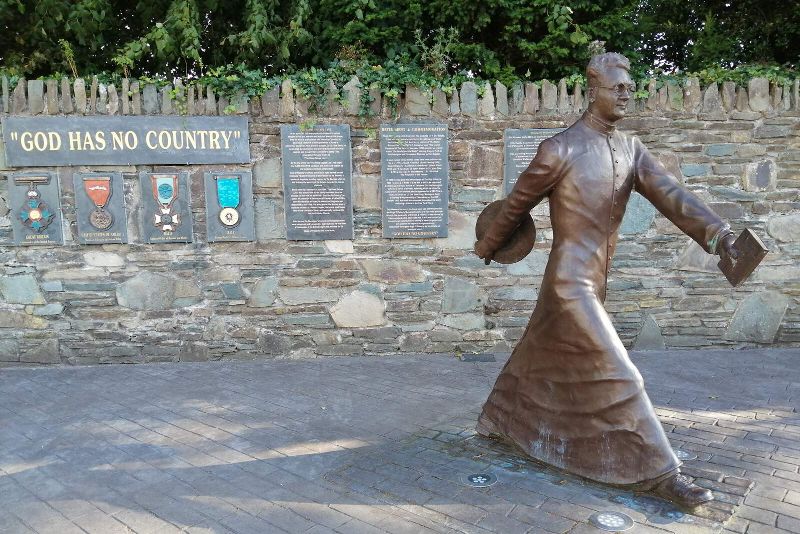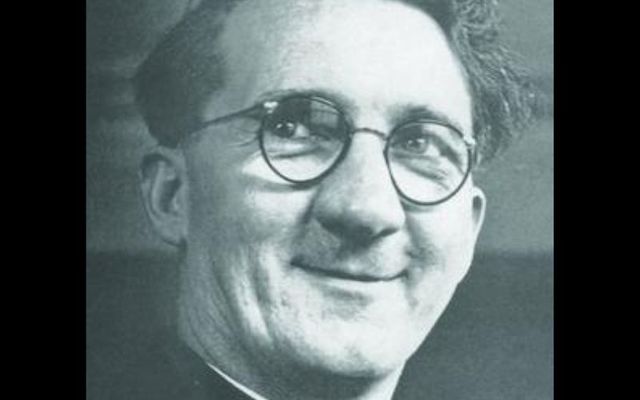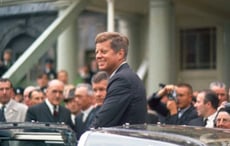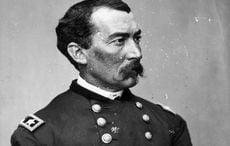Monsignor Hugh O’Flaherty, who was born on February 28, 1898, in Co Cork, may be one of the greatest Irish men who ever lived, yet his story is hardly known.
This brave priest, who was raised in Killarney, Co Kerry, saved thousands of civilians and Allied soldiers during World War II.
Growing up in Ireland, I never heard O'Flaherty's tale, but I suspect I know why. He was the heroic Monsignor, based in the Vatican, who saved thousands of Allied soldiers from the Nazis and also saved hundreds of Jews from the death camps.
Perhaps because he was helping the British in the war effort his story drew a veil of silence in Ireland but it should not have. World War II was a time for people of all backgrounds to choose sides between a monstrous evil and a force to battle that evil.
A book I have just finished reading outlines in great detail the heroic and extraordinary efforts of a great humanitarian and Irish history.
The book is entitled “'Hide and Seek' - The Irish priest in the Vatican who defied the Nazi command" by BBC journalist Stephen Walker.
Though an intensely proud Irishman and deeply nationalist after seeing the Black and Tans in operation during his years in the seminary, Monsignor Hugh O’Flaherty realized early on that he needed to be on the side of the good guys.
That contrasted sharply with the position taken by Pope Pius XII who dithered while the Nazis overran Europe.
Flaherty organized the escape route for allied troops who had escaped POW camps or had been shot down but survived.
Through an incredibly close network of friends and confidantes, he set up safe houses all over Rome and in the Vatican itself where his work soon drew grave suspicion from the Nazis.
The book is a fascinating account of the stand-off between O'Flaherty and the head SS man in Rome, Herbert Kappler.
Kappler suspected O’Flaherty and had him under surveillance at all times. O’Flaherty comes across as a Michael Collins, however, hiding in plain sight, appearing each morning on the steps of Saint Peter's and meeting with those who were organizing the freedom runs.
He helped everyone who sought refuge, including many Jews, which infuriated Kappler. The SS commander tried to have O’Flaherty kidnapped with a view to summary execution but somehow O’Flaherty always managed to survive, earning him the nickname of the “Scarlet Pimpernel."
Once, having left the neutral confines of the Vatican for a freedom route meeting, the Nazis raided the house and O’Flaherty, who was hiding in the cellar, was saved by sheer luck when two coal men came to drop their supplies and he “borrowed” one of their outfits and strolled past the SS wearing the outfit and carrying a sack.

Monsignor Hugh O'Flaherty Memorial Statue in Killarney, Co Kerry. (Ireland's Content Pool)
After the war, he was celebrated all over the world but refused most of the honors. Kappler was tried and found guilty of war crimes. Amazingly, O’Flaherty visited him frequently in prison and Kappler converted to Catholicism. O’Flaherty retired to his native Kerry for his final days and passed away there in 1963.
In 2013, a statue was unveiled in his honor in Killarney.
In a poem to celebrate his life, Irish poet Brendan Kennelly wrote of O'Flaherty:
There is a tree called freedom and it grows
Somewhere in the hearts of men
Rain falls, ice freezes, wind blows
The tree shivers, steadies itself again,
Steadies itself like Hugh O'Flaherty's hand.
Guiding trapped and hunted people, day and night,
To what all hearts love and understand
The tree of freedom upright in the light.
Was there ever a more courageous Irishman?
* Originally published in 2011, updated in 2023.




Comments